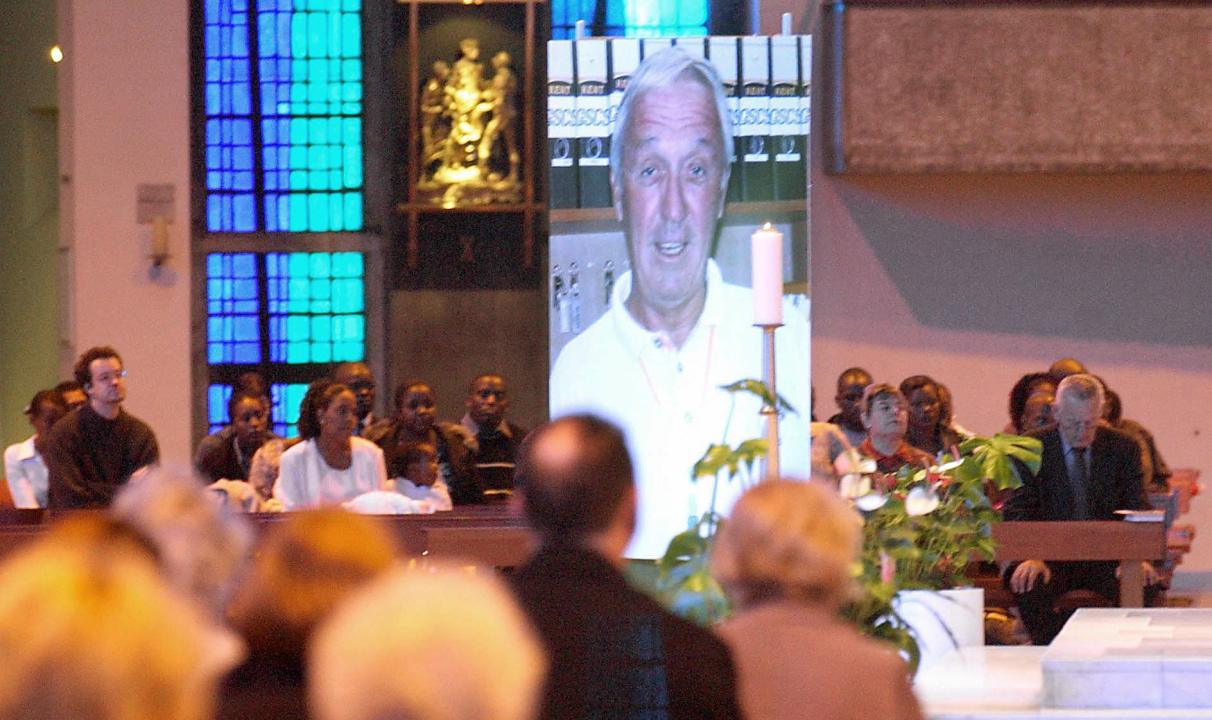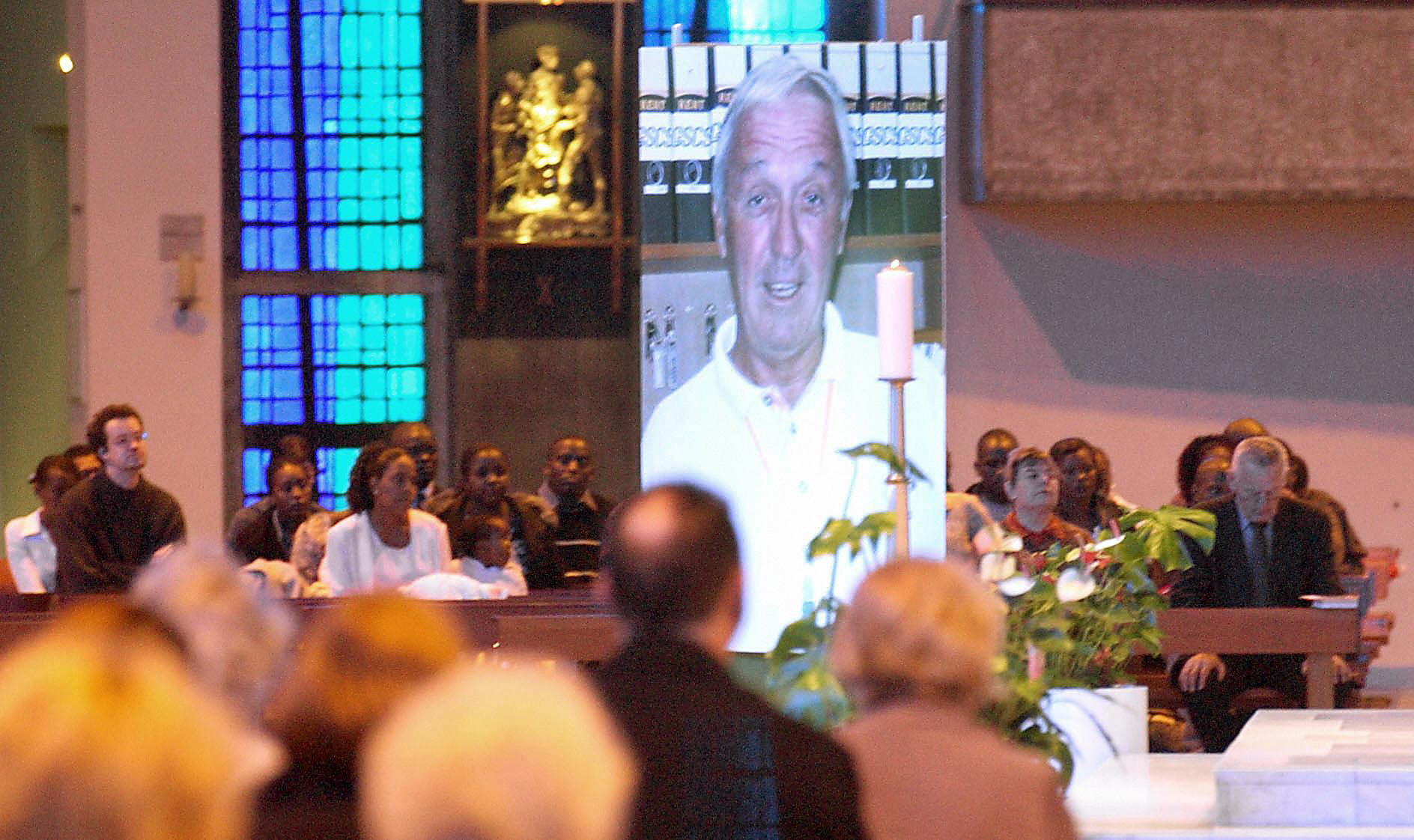The three recent beheadings by the so-called Islamic State have been peculiarly, barbarically pointless. IS was asking western governments to leave them be to wreak havoc across the Middle East; it was an unrealistic demand. But rather than toning down their behaviour to a level perhaps tolerable, they simply executed their hostages. By murdering two American journalists and a British aid worker IS have demonstrated to the world that they don’t mind killing people, in case anyone hadn’t noticed, but they haven’t won any PR points, let alone any concessions.
In 1995, Robin Harris pointed out that, whatever we might like to believe, hostage taking pays.
Western liberalism is the creed of happy endings. Western liberals endlessly scan public affairs at home and abroad for evidence that virtue is rewarded and crime does not pay; and when it appears that crime pays very well indeed, they find consolation in the thought that the criminal’s reputation or ’cause’ has been ‘damaged’.
Actually, he pointed out, recent Bosnian-Serb hostage takers weren’t interested in world opinion and in fact the kidnapping had ensured the end of Nato air strikes against them.
Hostage-taking has therefore paid — just as has Chechen hostage-taking by achieving suspension of Russian campaigning against them indeed, just as most international crimes against norms of morality and law pay. It is simply that we in the West like to convince ourselves that they do not. Genocide pays — almost by definition, since the nation or race destroyed has no chance of reparation or justice. Ethnic cleansing pays. The now nationally homogeneous European countries of Germany, Poland, and the Czech Republic are the result of past successful policies of ethnic cleansing and persecution of minorities, accompanied by revision of frontiers. Terrorism pays. From the Palestinian West Bank to South Africa it is the leaders of terrorist groups who have eventually won power by a strategy of violence against civilians accompanying offers of political negotiation.
Similarly, the IRA would never have been accepted at the negotiating table had they not bombed mainland Britain. They know the real source of their power, even if Westminster politicians do not; that is why they will never agree to hand over most of their weaponry, which they intend to use as an ultimate veto on future democratic decisions of which they disapprove.
In the ‘80s, Lebanese hostage-takers were horribly effective. Patrick Bishop described the horrors suffered by Father Lawrence Jenco, who was captured in Beirut in 1985 and held for 564 days.
In recent years the practice of hostage-taking has proved a uniquely risk-free and effective way for terrorists to shake governments. Lebanese hostage-takers have forced the Great Satan to hand over millions of dollars’ worth of arms to Iran. In France in return for the release of five captives they have persuaded the government to negotiate the release of Iranian assets frozen in 1979 and to kick out the Ayatollah’s opponents. When the German authorities arrested Mohammed Ali Hamadei, a member of the Shi’ite clan that is at the heart of the kidnappings, the immediate seizure of two Germans in Beirut by the family ensured that whatever happens, full justice will not be done. To add to its appeal for terrorists, kidnapping has shown itself satisfyingly capable of humiliating the mighty, as they grope to get an armlock on opponents whom they can rarely properly identify, let alone understand.
When the British engineer Ken Bigley was kidnapped in Iraq in 2004, his captors demanded the release of Iraqi prisoners being held by coalition forces. The government did not comply, but it was a controversial decision. Frank Johnson, for example, thought they ought to have done more.
Mr Bigley’s captors’ demands are not unreasonable: that certain women prisoners in Iraq should be released; women who, so far as we know, are not terrorists but who have been caught up in events because they worked for Saddam…If Mr Blair and Mr Straw give in, we must assume that there would be more hostagetakings and more demands. But historical circumstance comparable to the Anglo-American engagement in Iran suggests that the United States and the United Kingdom will indeed ‘give in to terrorism’ and leave Iraq. Present evidence suggests that they are already doing so. Shia militia are now allowed to control parts of the country. They are being ‘given in’ to. Some time over the next year, the Americans, and therefore the British, will start to withdraw their forces. Some sort of Iraqi democracy will be in place when they do so. We must hope that it survives. More likely, regional warlordism or some sort of tyranny will replace it. Some of those warlords will have been our present enemies, especially those Shia associated with Shia Iran.
It looks as if for the time being Mr Blair will sacrifice the head of any Briton in Iraq until he, the Prime Minister, is ready to quit. In which case, he would sacrifice the head of many an Iraqi who sided with the Anglo-Americans. He should appease Mr Bigley’s captors before he appeases the entire country of Iraq. That would be true statesmanship.
The beheadings of the last few weeks have hardened public opinion in the west against IS and made Cameron and Obama’s intervention look like the right decision. As far as we know, the group has gained not a single thing from three hostages, apart from chest beating of the most macabre sort.







Comments